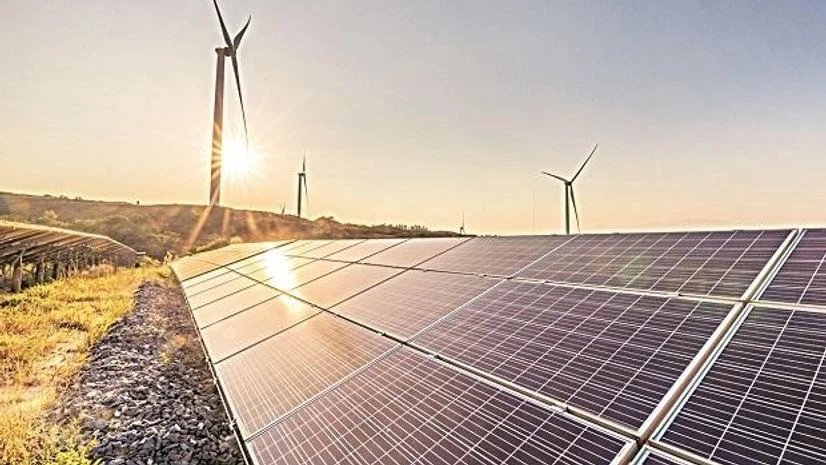Industry body CII has urged the Ministry of Finance in its memorandum submitted on Monday to impose the basic custom duty (BCD) on solar equipment as announced in the last general budget, stressing that the delay in implementation is impacting investments.
The CII representatives have met the finance ministry top brass to represent the infrastructure sectors during a scheduled pre-budget meeting on Monday.
The memorandum stated that implementation of BCD on solar equipment was announced in the last Union Budget, but the government is yet to lay down the implementation road map.
The body stated that delay in BCD levy is impacting the investment decisions of the industry.
Earlier in June this year, Power Minister R K Singh had also talked about imposing BCD on solar equipment.
The CII also urged the ministry to bring power under the ambit of GST (goods and services tax), saying that this has been requested through its pre-budget recommendations for several years.
More From This Section
It is proposed that the electrical energy may be brought to the GST net with lower rate of GST or keeping it exempt from GST, refund of input credit should be given to the generating/transmission/distribution utility, it added.
This is pending decision from the Government of India, the body claimed.
About the long-term policy on hybrid- solar plus wind, solar plus storage, solar plus thermal-peaking power, RTC (round the clock power, etc, the body said that the guidelines for this were issued by the Ministry of Power (MoP), and the bid documents have been issued by Solar Energy Corporation of India (SECI) on August 27, 2020.
The CII had made recommendations on this, as Annexure 6 on RTC for RE.
"Our humble request to the ministry to please share the way forward on this for the benefit of all stakeholders," it pleaded.
It also highlighted that decision on Tariff Policy, 2016 and the Draft Electricity Amendments Bill (EAB) 2020 is pending.
The Tariff Policy is an important policy for bringing in more competition, especially in the distribution sector.
The EAB 2020 was also hailed by the industry as an important step for bringing in more efficiency to generation, distribution, transmission and alternate procurement like short term market, open access etc.
Both are important policy guidelines and are pending implementation from the government, it stated.
About the enforcement of must run status of renewable energy (RE) plants, it said that the issue of artificial curtailment has been a cause of concern for renewable energy generators especially in renewable energy rich states.
"Violating the 'must-run' status of RE plants, SLDCs (state load dispatch centres) have been curtailing RE generation despite adequate grid availability. Discoms or the SLDCs/RLDCs (regional load dispatch centres) permit preferential outflow of power from generating stations by holding up offtake of power from other stations. Therefore, enforcement of must-run in true letter and spirit is yet to be seen in some states," it pointed out.
The MoP has already taken steps to bring in a consultative process.
"Action on this is requested to be expedited," it pleaded.
About the enforcement of letter of credit (LC) and payment security for both renewable and conventional power generation plants, it stated that as of September 2020, the DISCOM dues stand at Rs 1,26,000 crore.
There were already legacy payment issues which have accumulated with the power sector running into a mid-year turmoil as the country faced the pandemic that severely affected demand, it pointed out.
While mandating a LC was one of the very progressive moves of the Government of India, announced at a CEOs Dialogue in 2019.
There are implementation issues at states require guidance and intervention, it stated.
About policy for promoting and enhancing roof top solar for C&I (commercial and industrial) and residential consumers, it stated that solar pumps under the PM-KUSUM scheme -- a policy that is a win-win for all stakeholders will help India achieve its rooftop solar ambitions.
It should focus on solutions that should remove any loss to the incumbent utilities specifically T&D (transmission and distribution) sectors.
A practical implementable support from the Ministry of New & Renewable Energy will be very helpful to make this a mass movement in 2021, it suggested.
About merchant policy of renewable development, it stated that this includes enforcement of RPO (renewable purchase obligation) obligations by the states.
In the evolved international energy markets RE-based projects also tap into the Merchant Markets' and rely on market dynamics for pricing.
Under this structure, buyers and the sellers are free to secure their contracts through exchanges, open access, bilateral deals, captive modes, etc. and for varying periods based on mutual negotiations between the beneficiaries.
The CII believes that this concept can open alternate mechanism to complement the existing secured fixed-term, fixed-tariff market and can further boost the trajectory for meeting the RE targets, it added.
(Only the headline and picture of this report may have been reworked by the Business Standard staff; the rest of the content is auto-generated from a syndicated feed.)

)
